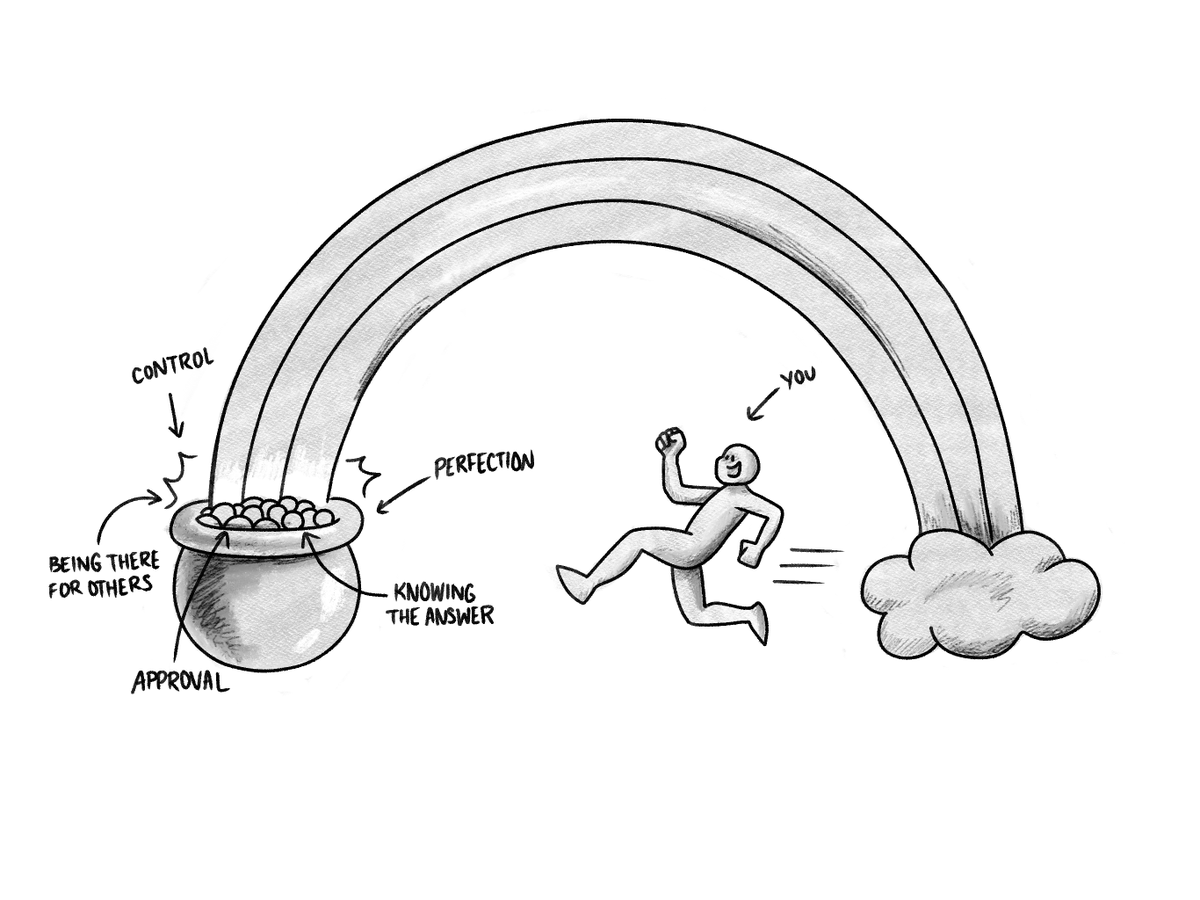If you're stuck in a recurring, predictable toxic pattern with someone, your temptation is to focus on them - all the things they are doing to make it worse. But #SystemsTheory teaches us to take responsibility for what we can own. By pausing, we can break toxic patterns.
1/
1/
Rather than spend energy on 'them' you can pause and run a few powerful steps.
1. Map out the actual problem.
Many people stay stuck because they haven't clarified the ACTUAL problem. Sometimes a 'problem' is actually 5 interrelated problems.
2/
1. Map out the actual problem.
Many people stay stuck because they haven't clarified the ACTUAL problem. Sometimes a 'problem' is actually 5 interrelated problems.
2/
Our KidMin was struggling with volunteers cancelling on Sat night. That feels like the problem, but when you tease it out, it is several interrelated problems.
3/
3/
Actual problems:
- my family's frustration that now I am working Sat night to get volunteers.
- My response to volunteers that 'it is no problem' because I am a people pleaser.
- potential KidMin rooms closing Sun due to vol shortage
etc.
4/
- my family's frustration that now I am working Sat night to get volunteers.
- My response to volunteers that 'it is no problem' because I am a people pleaser.
- potential KidMin rooms closing Sun due to vol shortage
etc.
4/
We get stuck in a PROBLEM because we don't take time to tease out the tangle of problems that make up THE PROBLEM.
5/
5/
Step 2 is vital: name the attempted solutions to this problem that are not working. List all of them:
- telling the vol 'its no problem.'
- telling your spouse, 'it is for the church, we do what it takes' rather than hearing spouse's frustration at Sat night work etc.
6/
- telling the vol 'its no problem.'
- telling your spouse, 'it is for the church, we do what it takes' rather than hearing spouse's frustration at Sat night work etc.
6/
Step 3 is always most painful and then most freeing:
List your complicity in the problem.
What are you doing to make the problem worse?
7/
List your complicity in the problem.
What are you doing to make the problem worse?
7/
Step 3 works because we don't realize that 'the problem with those people' is often inexplicably linked to our own behavior. This gets to the heart of Systems Theory - we are all linked, our behavior and assumptions all impact each other.
8/
8/
Naming your own complicity helps you bring actual systemic change.
So many times, this step has helped me move from frustration, demonizing another person, and reactivity, to taking responsibility.
9/
So many times, this step has helped me move from frustration, demonizing another person, and reactivity, to taking responsibility.
9/
Step 3 is gold when you bring change. Rather than blaming the other, you start with, 'here is what I am doing that is making things worse. What do you see that I am doing to make it worse?'
Coming to someone 'underneath' them, confessing your own complicity is disarming.
10/
Coming to someone 'underneath' them, confessing your own complicity is disarming.
10/
Step 4: List the 'motivated change agents.'
No point wasting energy on people unmotivated to change.
Also, 'who is over functioning and who is under functioning in this dynamic?'
Sometimes the simplest stopping of over functioning can break a pattern.
11/
No point wasting energy on people unmotivated to change.
Also, 'who is over functioning and who is under functioning in this dynamic?'
Sometimes the simplest stopping of over functioning can break a pattern.
11/
'The colossal misunderstanding of our time is that insight will work with people unmotivated to change.' Edwin Friedman.
I have violated that quote so many times.
12/
I have violated that quote so many times.
12/
Once you're clear on the problems, your attempted solutions, your complicit, now you have perspective.
Now you can bring actual change clear headed. Now you can approach the person and have a difficult conversation admitting your own contribution to the problem.
13/
Now you can bring actual change clear headed. Now you can approach the person and have a difficult conversation admitting your own contribution to the problem.
13/
With our KidMin - their frustration kept them from seeing that Sat night cancellation was an attempt at courtesy by dedicated volunteers.
Vol would get sick on Wed, and say to themselves, 'I'll be better by Sun' but still sick Sat and had to call.
14/
Vol would get sick on Wed, and say to themselves, 'I'll be better by Sun' but still sick Sat and had to call.
14/
They then call and staff says, 'no problem at all!' Staff communicated, 'you make no difference.'
Staff changed communication. They told all vols, 'when you get sick midweek, tell us right away, we know you're waiting our of courtesy, but tell us early now please.'
15/
Staff changed communication. They told all vols, 'when you get sick midweek, tell us right away, we know you're waiting our of courtesy, but tell us early now please.'
15/
Sat night cancellation was not 'usual, unreliable suspects' it was 'random % of 130 volunteers.' Knowing this made it feel less personal. Everyone gets sick once in a while. Everyone forgets they made weekend plans once in a while.
We studied companies that over book.
16/
We studied companies that over book.
16/
Airlines overbook all the time, counting on a % of no shows. KidMin began a plan to 'overbook' Sun vols, so when % cancelled, we were still fine.
Twitter always makes things seem tidier.
This is brave, difficult work, but it keeps you from staying STUCK.
17/17
Twitter always makes things seem tidier.
This is brave, difficult work, but it keeps you from staying STUCK.
17/17
• • •
Missing some Tweet in this thread? You can try to
force a refresh









